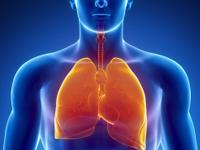Effects of Exercise on the Respiratory System

Short Term Effects of Exercise on Respiratory System
When your activity level changes, your body has to respond by making changes to your respiratory system. The change in activity will also affect your muscles and the circulatory system.
1. Changes in Circulatory System
The change in your activity will have an immediate effect on your heart rate. In fact, the release of adrenaline can change your heart rate even before you begin your activity. This in turn increases your cardiac output as well as venous return.
2. Changes in Respiratory System
The short-term effect of exercise on respiratory system is usually quite extensive and that is mainly due to the changes in the concentration of oxygen and carbon dioxide in the blood. It is due to these changes that you will notice your breathing rate go up quickly. This also makes your intercostals muscles, diaphragm, and other muscles involved in the expansion of thoracic cavity to work harder. This in turn will make it possible for you to inhale more air to deal with the increased demand for oxygen.
Long Term Effects of Exercise on Respiratory System
Your respiratory system responds to a change in your activity level almost immediately, but there will also be some long-term effect of exercise on respiratory and circulatory system. Here is more about it.
1. Changes in Heart Rate
When you exercise, your adrenal gland becomes active and prepares you for the hard work by releasing adrenaline and noradrenaline. These hormones affect the way your heart transports carbon dioxide and oxygen throughout the body. This requires your heart to beat stronger, and this is where the hormones will help by stimulating the sympathetic nervous system. Your heart rate will increase and your cardiac output will go up to help you deal with the strenuous physical activity.
2. Changes in Respiratory Muscles
Exercise leaves an effect on your diaphragm and intercostals muscles, and regular exercise will help strengthen the respiratory muscles. Over time, this also helps chest caving become larger.
3. Changes in Respiratory Volume
The respiratory volume goes up immediately, and regular exercise leads to an increase in overall efficiency of your respiratory system. In fact, people who exercise regularly develop an improved ability to consume oxygen during maximal exercise. This ability is measured using a test called a VO2 max test.
4. Changes in the Gaseous Exchange
Studies show that regular exercise has the ability to increase the number of capillaries around the alveoli. Moreover, regular exercise can help capillaries dilate more, which in turn facilitates efficient exchange of gasses.
5. Changes in Lung Efficiency
The overall efficiency of lungs improves through regular exercise. The benefit comes mainly due because your lungs can now deliver oxygen to the cells of the body. Regular exercise also increases blood flow, which in turn strengthens the lungs and ensures better exchange of gasses.

